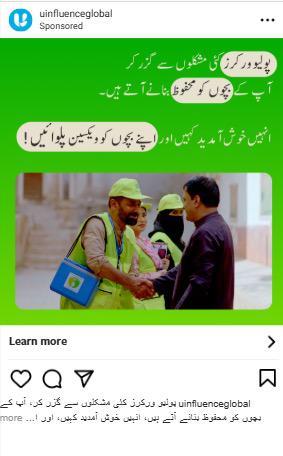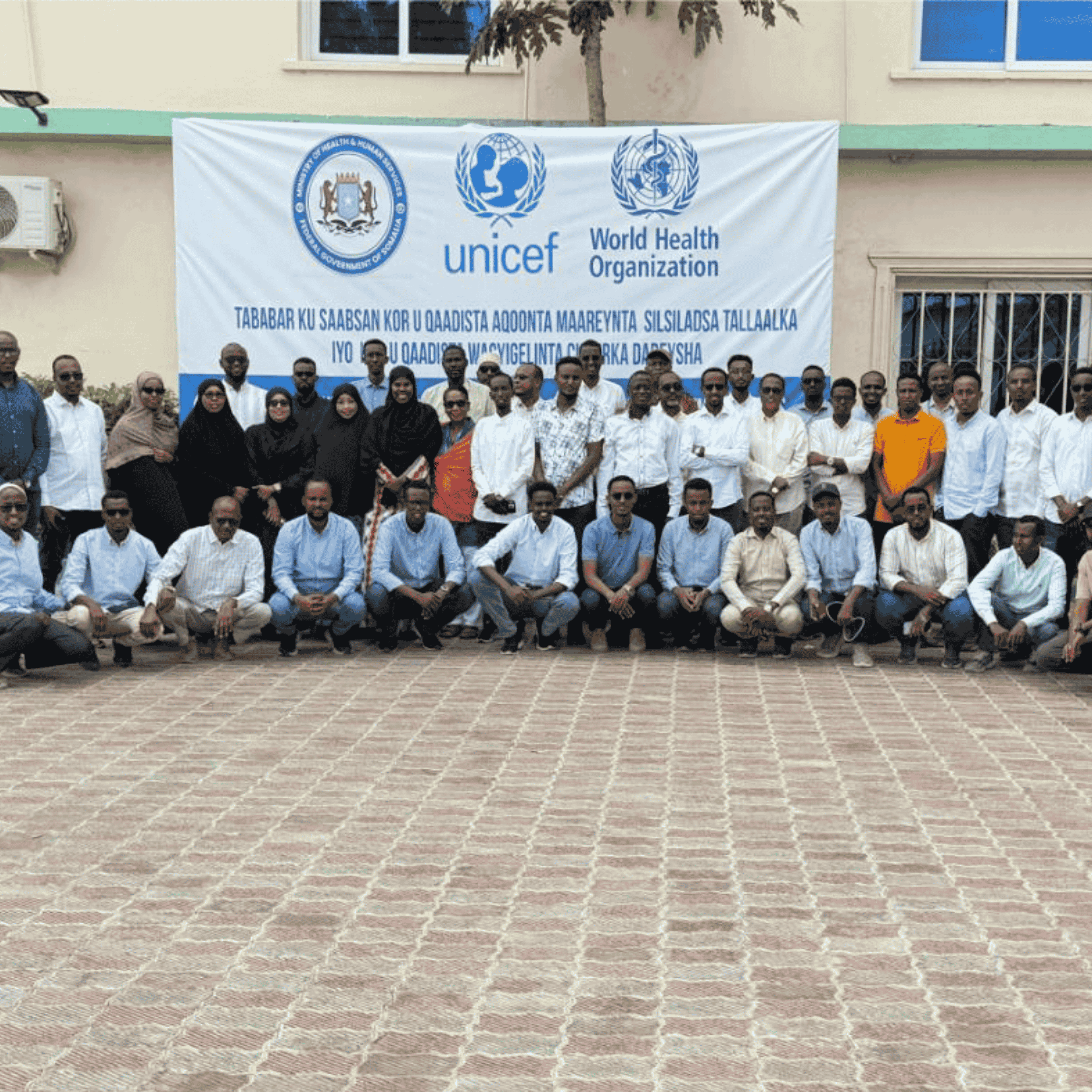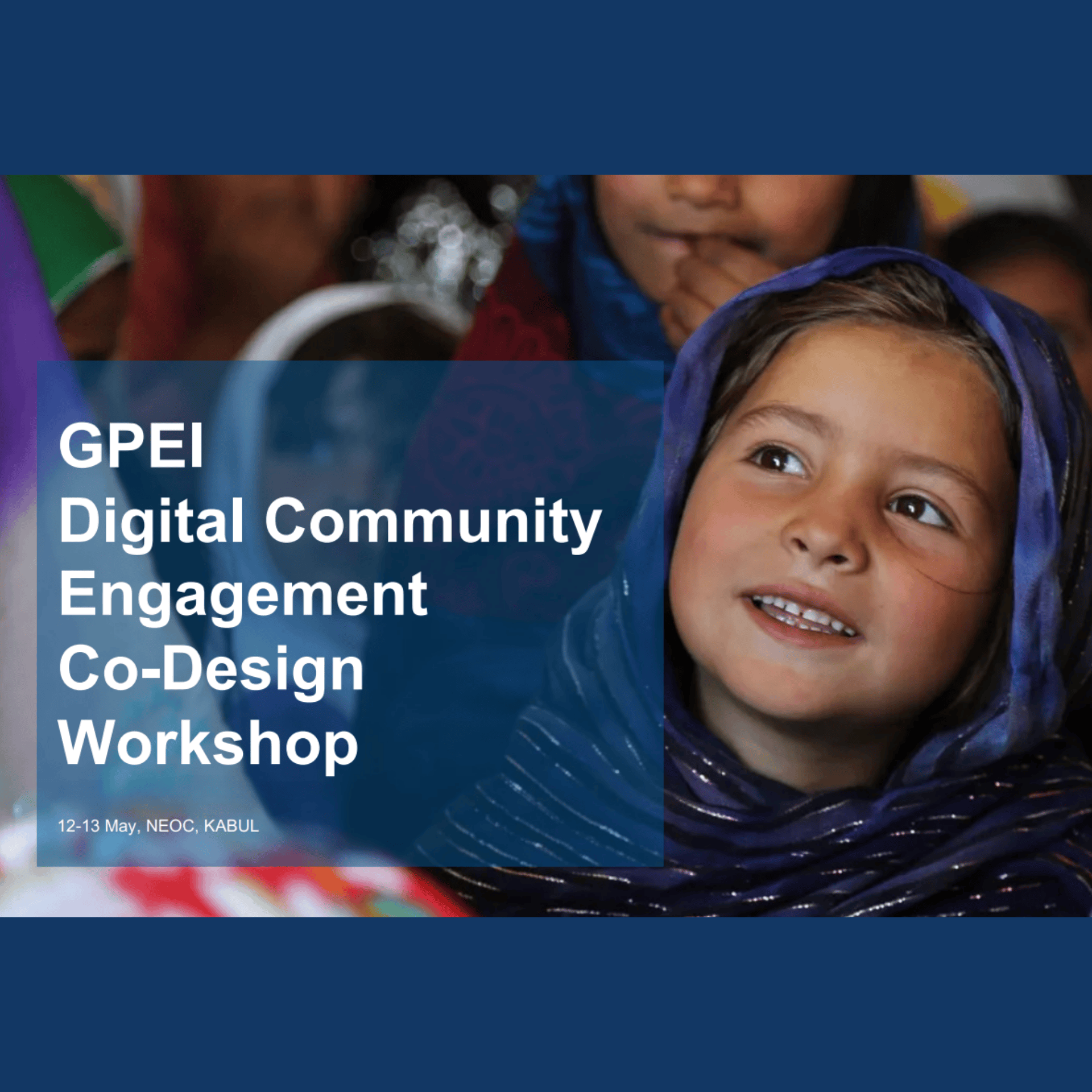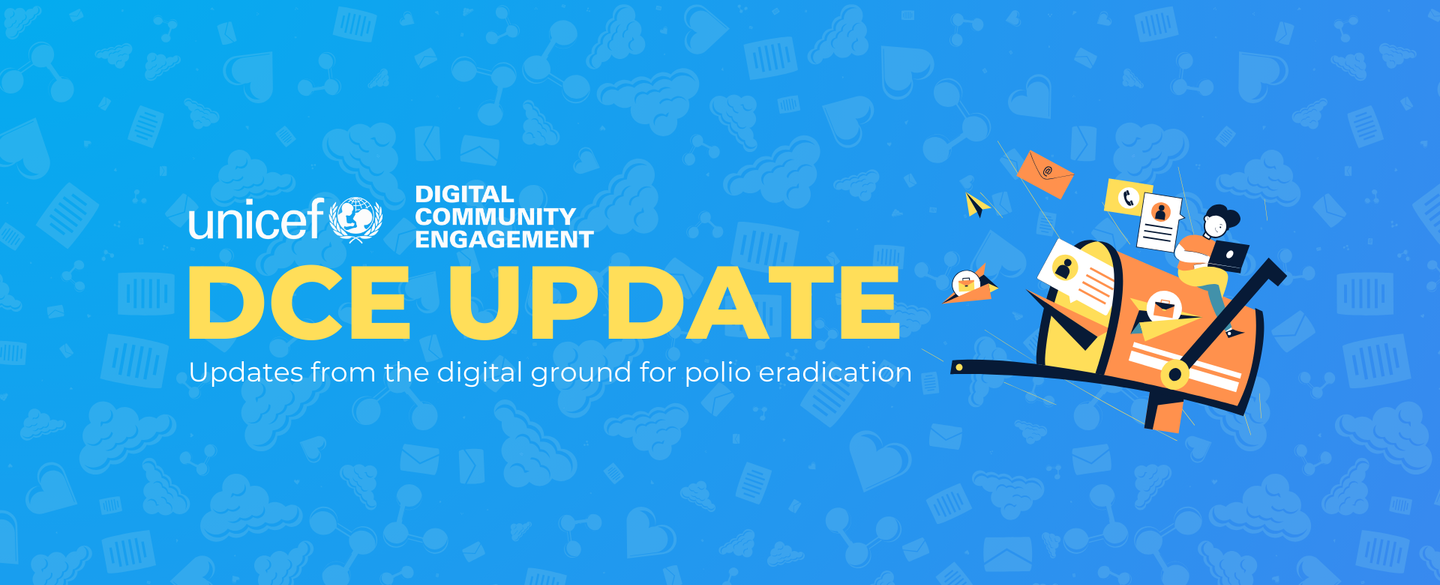TRUST – LEARN – ADAPT. REPEAT!
What does it take to build trust in a world of doubt?
A full evaluation of the April-May digital campaigns in Pakistan reminded us just how crucial is the capacity of listening before intervening. By monitoring to how people engaged with content, we didn’t just measure results—we learned what mattered most and what information communities need in order to make choice for their children health. These lessons are already shaping how we think, plan, and design future campaigns.
While we prepare to move from insights to action for the outbreak response in Papua New Guinea, we are conscious that we can’t stop to learn and refine our approach and our content in order to remain relevant with a new and completely different cultural and social context. And so we will do in Somalia and Afghanistan, where we're seeing fresh energy as the country teams explore how digital engagement can strengthen social and behavior change.
Looking ahead, we’re preparing two new global campaigns to support countries in tackling misinformation and explaining why repeated doses matter—tools we hope will spark new ideas and strengthen local efforts.
We hope this issue gives you a window into how we’re learning, adapting, and growing—together.

Adnan Shahzad
Digital Community Engagement Manager,
UNICEF NY HQ
Want to know more about DCE?
Join our monthly webinars or connect with the team directly to learn more about digital engagement and social listening tools.
Available to UNICEF staff and partners.
Join the DCE Community
Be the first to get monthly insights, tools, and real-time updates on digital engagement and polio response.
HIGHLIGHTS: WHAT’S DRIVING IMPACT

PAKISTAN
Real-Time Lessons, Smarter Campaigns
Our ongoing digital efforts in Pakistan show what’s possible when each campaign builds on the last. In April, real-time engagement data helped us refine content mid-rollout—boosting vaccine intent and identifying what worked best. In May, we scaled those insights across platforms, reaching over 100 million impressions and achieving top-tier view and click performance. This continuous cycle of testing, learning, and adapting is powering more trusted, effective outreach.
- 100M+ total impressions (May)
- 15.5M+ reached on Meta (May)
- 71% vaccine intent (April exposed vs. 69.5% unexposed)
- 189K+ total link clicks (May)
- 95%+ mobile engagement (April & May)
- Best platforms: TikTok (clicks), YouTube (views), Meta (reach)

SOMALIA
Building DCE Foundations
At a recent SBC training, the Somalia team explored how digital engagement can tackle misinformation and strengthen immunization demand. With growing interest in integrating DCE, we’re ready to support next steps as the country puts these new skills into action.

UPCOMING CAMPAIGNS
Afghanistan, PNG Response & Global Rollout
Afghanistan is planning a large-scale DCE campaign to build a positive digital environment around polio vaccination, starting August. Meanwhile in Papua New Guinea, a DCE campaign is the final stages of development in response to the recent outbreak – built on real-time insights to address rising vaccine safety concerns and deliver trusted, locally tailored content. At the same time, two global campaigns are set to launch in August to support countries in tackling the most persistent challenges: widespread vaccine misinformation and confusion around repeated polio vaccination rounds. One will focus on helping communities recognize and reject false information online, while the other offers clear, visual explanations of why multiple doses are critical to protecting every child.
RESULTS: LCB CAMPAIGNS IN MAY–JUNE 2025
Across the Lake Chad Basin countries, DCE campaign optimizations are continuing to drive awareness and engagement around polio vaccination. Here’s how the latest campaigns performed:
CAMEROON
Cameroon’s campaign outperformed expectations, more than doubling its reach target on Meta and securing strong visibility on Google Display across key regions:

CENTRAL AFRICAN REPUBLIC
The latest push in CAR significantly expanded digital reach. YouTube and Meta performance soared, reflecting smart placement and growing online visibility:

CHAD
While Google Display Network (GDN) posed challenges, Chad maintained strong performance by shifting focus to Meta—reaching large audiences with mobile-first messaging:

NIGER
Niger more than doubled its Meta reach from the previous wave and drove over 33,000 visits to vaccine-related content, despite rollout limitations on GDN:

These results reinforce the need for mobile-first and always-on digital presence in keeping communities informed and engaged in polio eradication.
VOICES FROM THE FIELD

Hameed Kashan, Digital Community Engagement Consultant, focuses on turning real-time social listening data into actionable insights – helping the team design interventions that resonate, adapt, and delivers stronger results.
“Every like, skip, comment, and share tells us something. We constantly analyze community trends, misinformation narratives, and key stakeholders, not just to track what is being said, but to shape what comes next. This real-time feedback loop is at the core of how we design smarter, more trusted campaigns.”
POLIO PULSE INSIGHTS: TRENDING NARRATIVES
🧠 Conspiracy Theories
After the U.S. announced it would cut vaccine funding, anti-vaccine voices across several countries seized on the news to push claims that vaccines are “toxic” and global health efforts are corrupt. Read more: Global funding backlash
From claims that vaccines cause autism or serve foreign agendas in Pakistan, to recycled myths in DRC about DDT causing polio, and posts in Ethiopia accusing health workers of dumping vaccines—conspiracies are evolving but remain persistent. Read more: Foreign agenda Pakistan | DDT myth DRC | Dumping claim Ethiopia
🎥 Viral Content
Videos featuring disinformation and religious doubts are spreading rapidly. One clip includes a well-known vaccine conspiracy figure and frames polio drops as “poisonous” or un-Islamic. Read more: Viral warning videos Pakistan
❗ Distrust & Doubts
Concerns about safety and frequency of polio drops continue to grow. In Pakistan, refusals are tied to claims that children are over-vaccinated. In Kenya, a widely shared video triggered fear over normal post-vaccine reactions. Read more: Too many drops Pakistan | Side effect fears Kenya
📢 Boycotts & Protests
Posts across several countries argue polio campaigns take priority over urgent needs like food or clean water. Some suggest vaccination is a distraction or “just for donors,” fueling campaign resistance and resentment. Read more: Vaccine refusal Pakistan | Hunger first Yemen | Celebrity backlash Nigeria
Stay ahead of the curve
Polio Pulse gives you real-time access to the latest rumors, risks, and narratives shaping polio vaccine acceptance. Use it to monitor trends, inform your strategy, and respond faster—wherever you work.
RESOURCES: YOUR DCE ESSENTIALS


Afghanistan’s DCE Strategy: Built with Communities, Powered by Insight
Go beyond the workshop recap—this deep dive shows how emotional storytelling, youth voices, and local WhatsApp ecosystems are transforming digital strategy into community-driven action. Read: Inside Afghanistan’s DCE Co-Design Workshop
Stay in touch with the DCE team
Have input, questions, or something to contribute?
Missed previous issues?
Catch up on April’s launch edition for DCE tools and strategy highlights, and explore May’s deep dive into local campaigns, uInfluence momentum, and insights from frontline teams.


